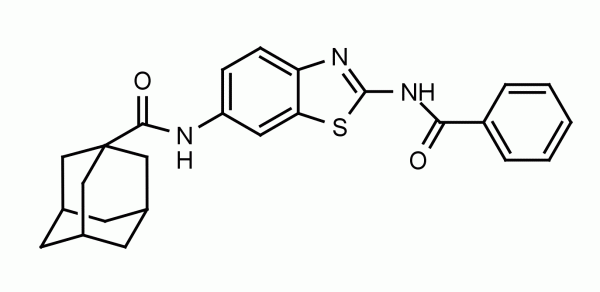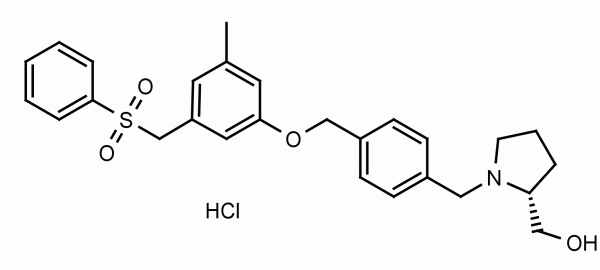Ceramides are bioactive sphingolipids which induce apoptosis in cells. Ceramidases, which hydrolyze the fatty acid chain, keep ceramide levels in check and have been proposed as a target for small-molecule inhibitors for anti-cancer therapy. B13 (or D-NMAPPD) is a potent ceramidase inhibitor which causes aopotosis in a number of cell lines including colorectal, HL60, melanoma, and keratinocyes.
References
1) A. Bielawska, C.M. Linardic, Y. Hannun “Ceramide-mediated biology. Determination of structural and stereospecific requirements through the use of N-acyl-phenylaminoalcohol analogs” J. Biol. Chem., 1992, 267, 18493-7.
2) M. Raisova, G. Goltz, et al. “Bcl-2 overexpression prevents apoptosis induced by ceramidase inhibitors in malignant melanoma and HaCaT keratinocytes” FEBS Letters 2002, 516, 47-52.
3) Bhabak, Krishna P.; Kleuser, Burkhard “Effective inhibition of acid and neutral ceramidases by novel B-13 and LCL-464 analogues” Bioorganic & Medicinal Chemistry 2013, 21, 874-882.


![Benzo[a]pyrene - Echelon Biosciences](https://www.echelon-inc.com/wp-content/uploads/2019/07/1452.gif)


